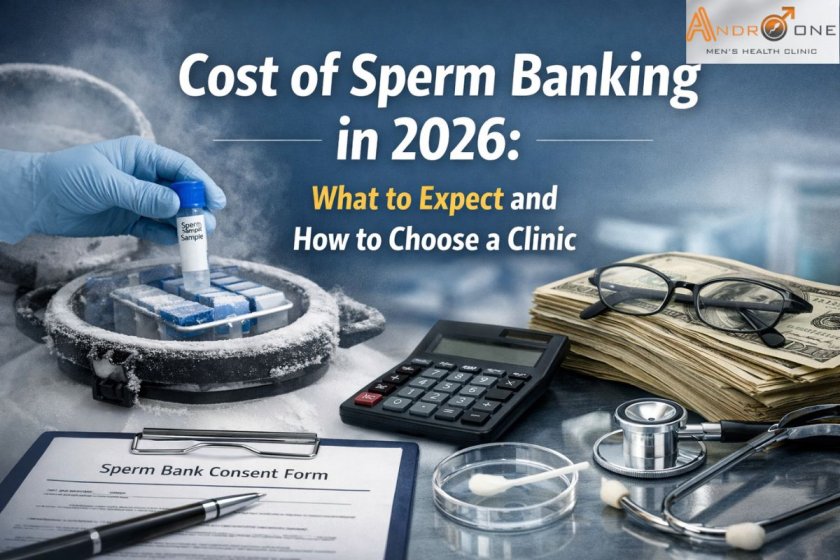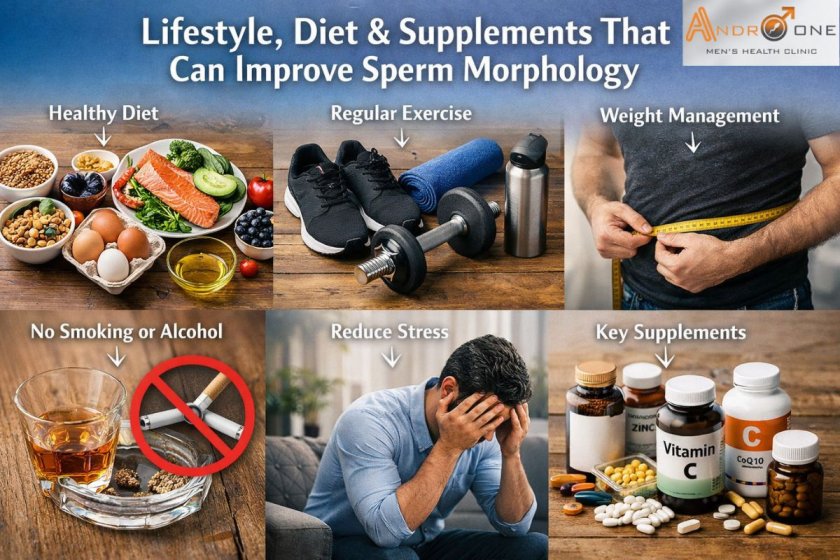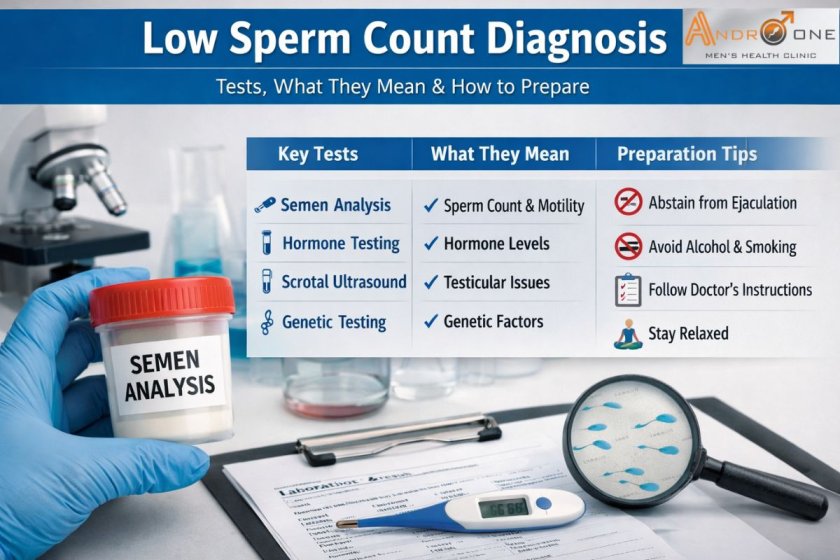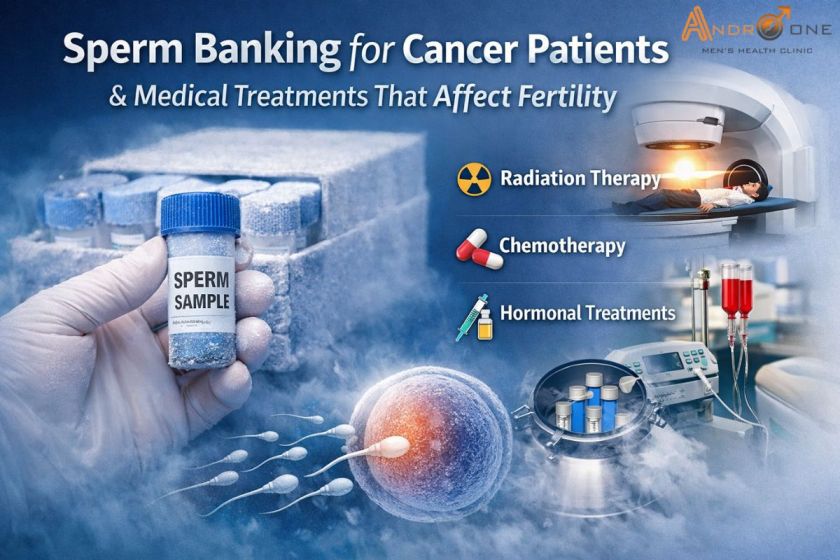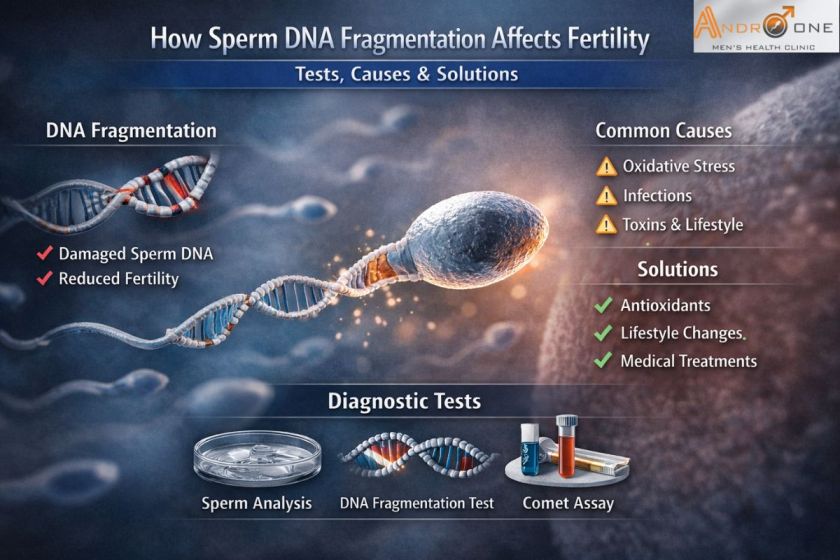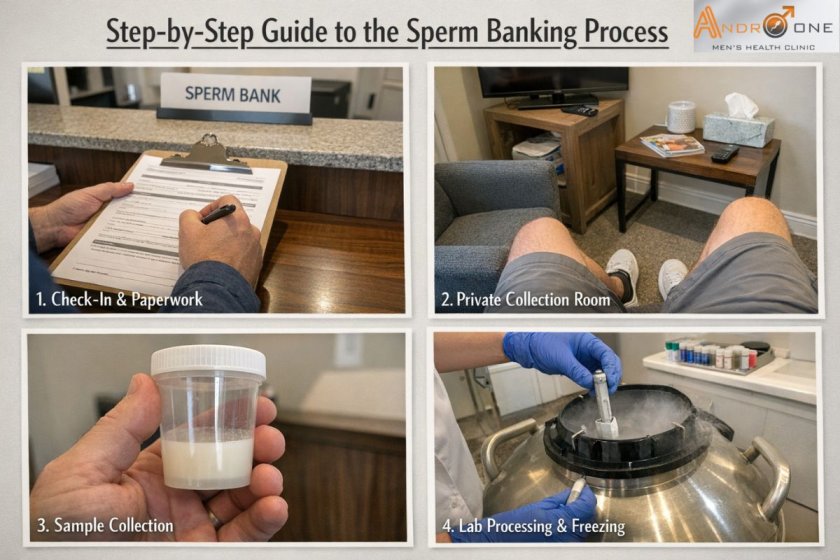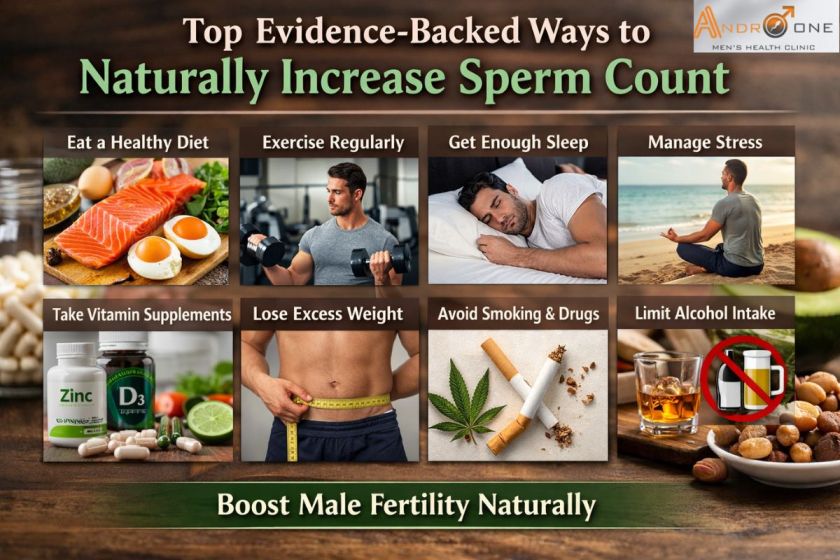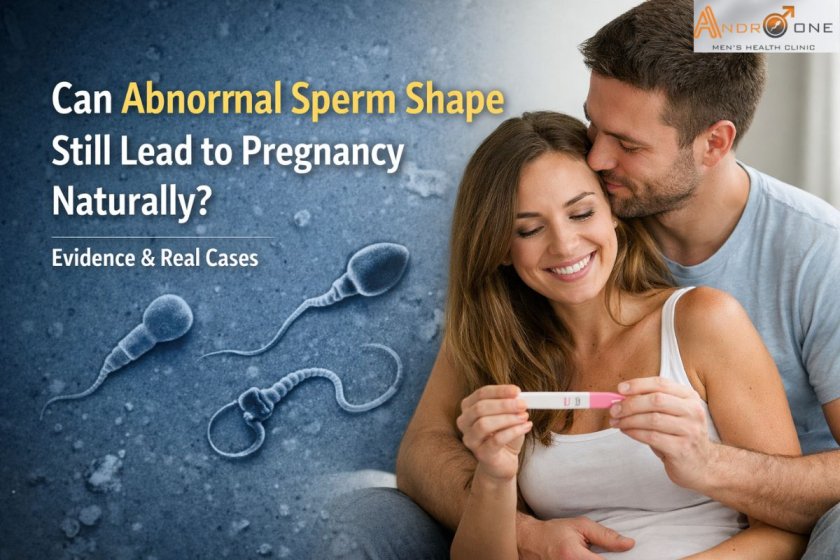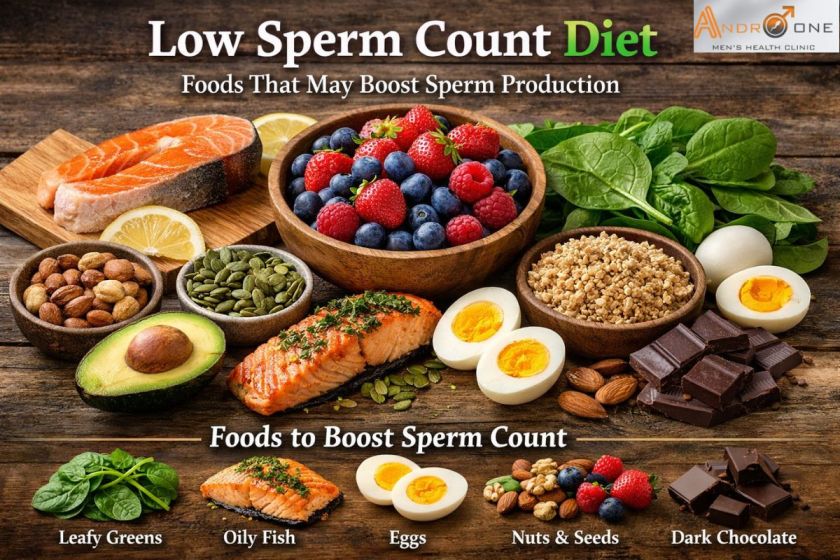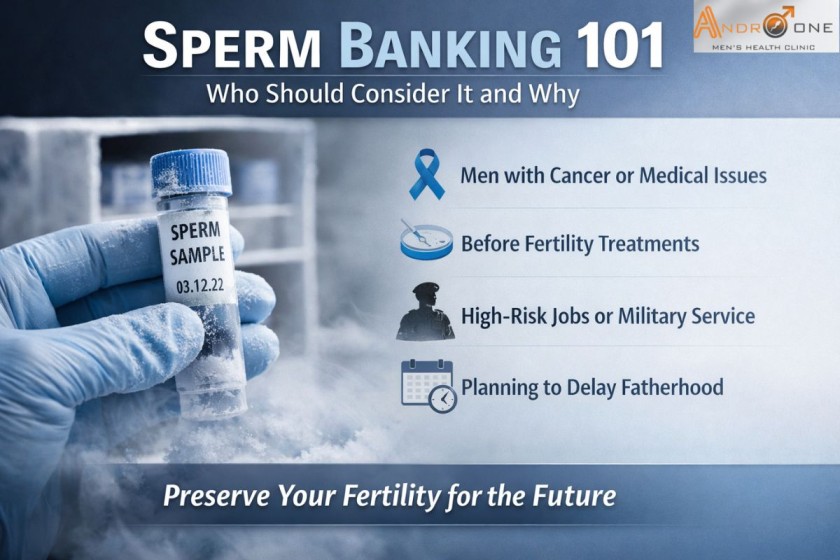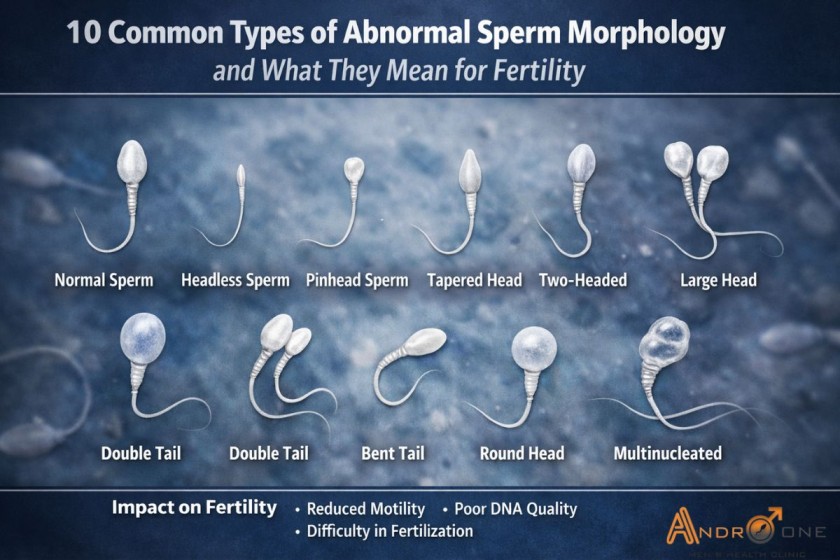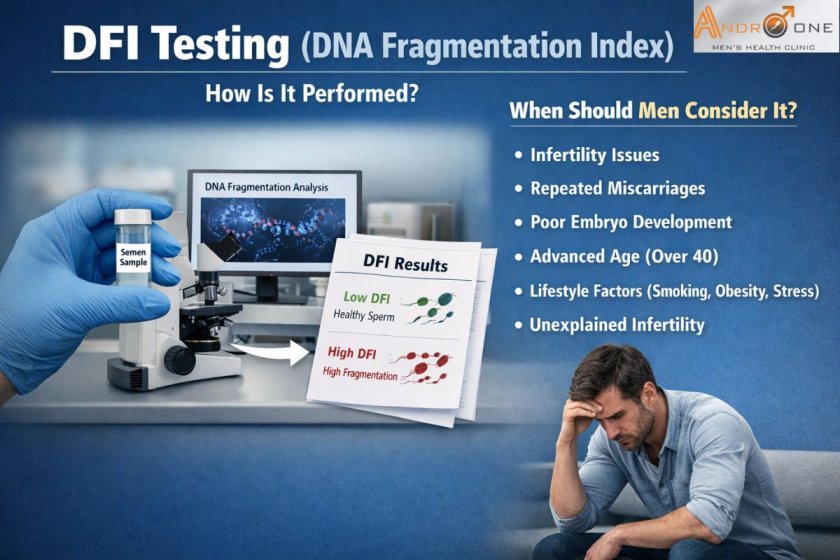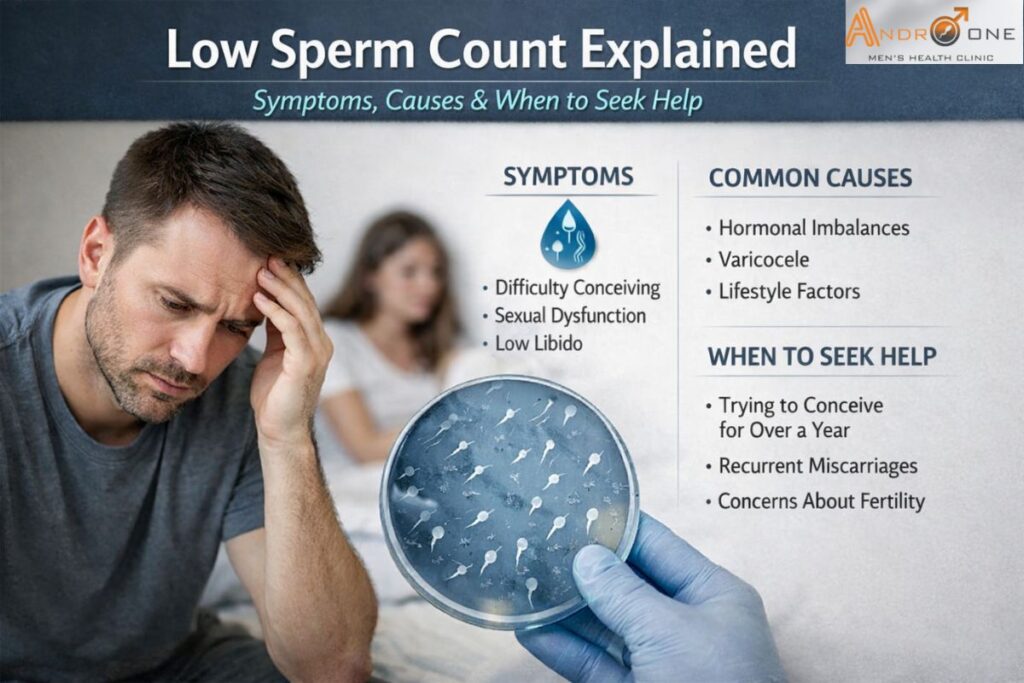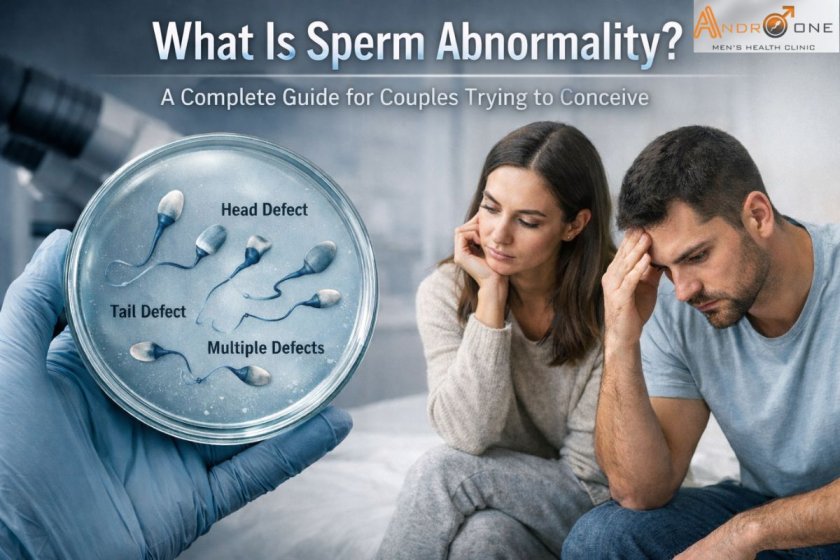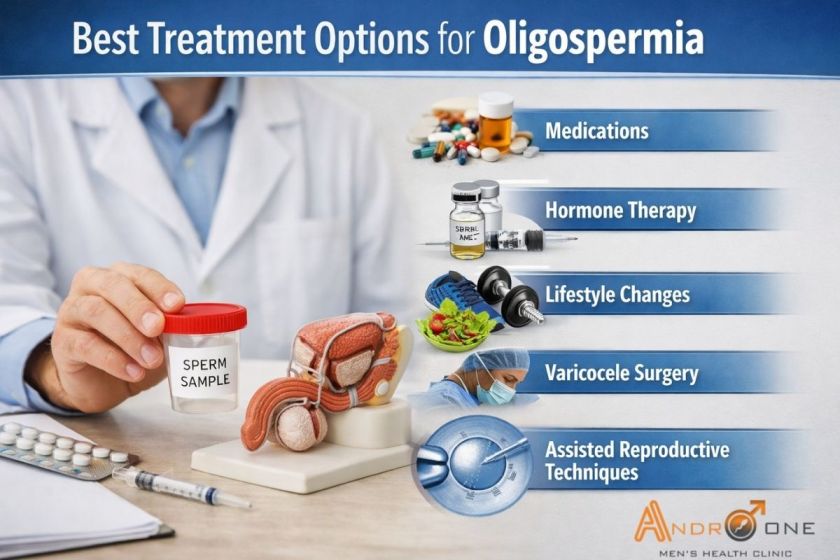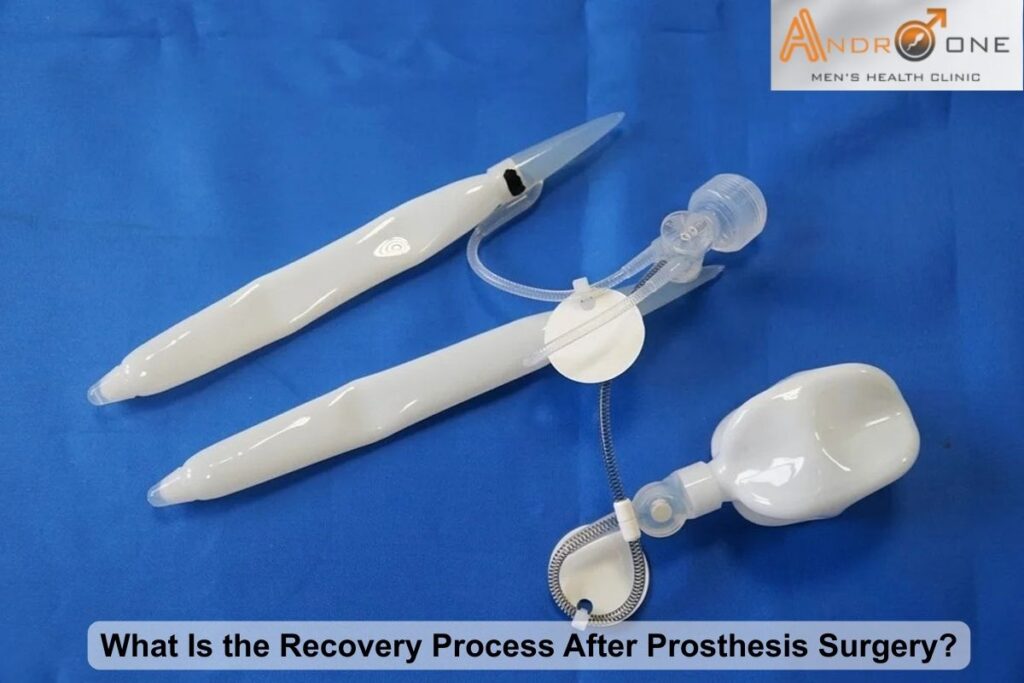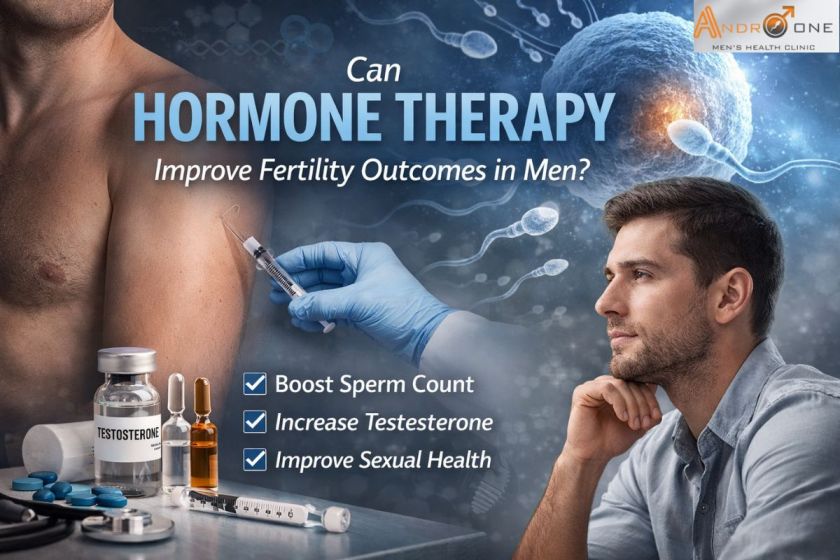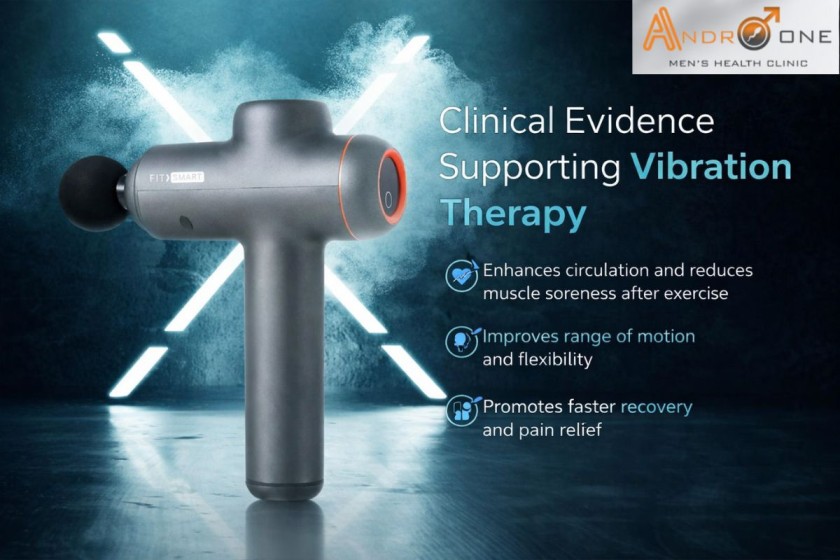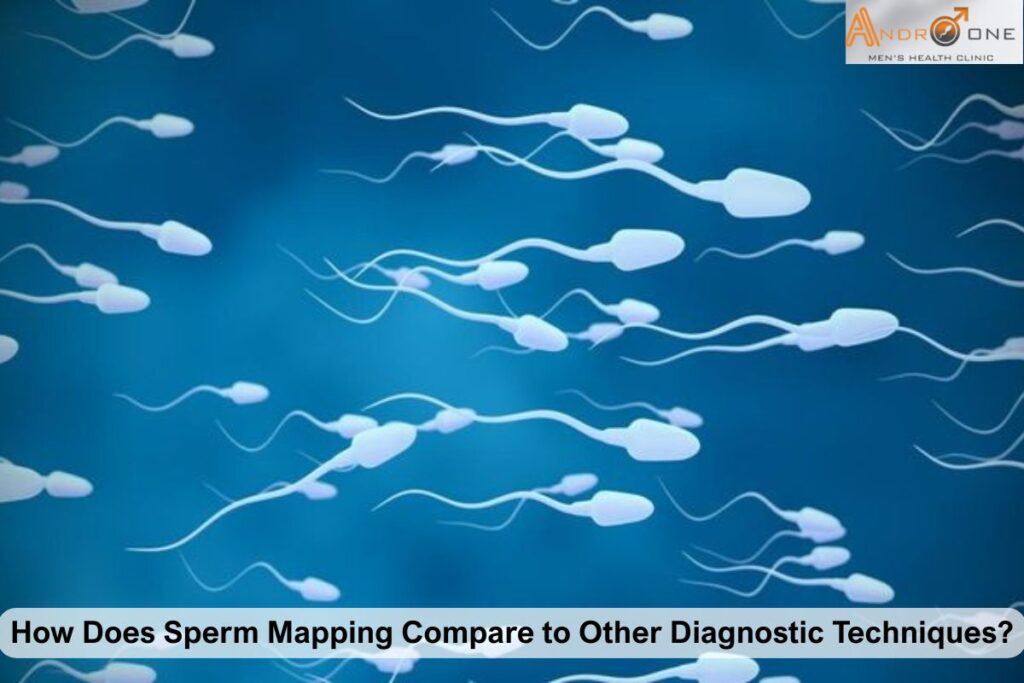Best Sexologist in Tamilnadu
What Is Sperm Abnormality? A Complete Guide for Couples Trying to Conceive
Table of Contents Key Takeaways Sperm abnormality is a medical condition also referred to as teratozoospermia, whereby the sperm of the man are abnormally shaped and hence may decrease the chances of fertilizing an egg and influence conception. Although it may not show obvious symptoms, it can create challenges for couples trying to conceive naturally. The positive thing is that, in case of early diagnosis, appropriate medical advice, and changes in lifestyle, a successful pregnancy may be possible. At Androone, specialists offer individualized care, which includes fertility evaluation, treatment, and lifestyle recommendations to assist men in improving their reproductive health and assist couples in reaching their parenting objective. What is teratozoospermia? Teratozoospermia is a kind of sperm anomaly whereby the shape of the sperm is abnormal. Sperm usually possess an oval head, a midpiece, and a tail. There may be defects in the midsection, head, or tail in teratozoospermia. This disease may not have visible symptoms, yet it can decrease fertility. Key points: Causes of sperm abnormality Abnormal sperm shape may be caused by a number of factors, which include: Note: Fertility may be affected even by minor abnormalities, yet treatment can be used to improve the outcomes. Symptoms to watch for The abnormalities in sperm do not necessarily result in symptoms. Couples undergoing conception can observe: Moreover, these indications are not so obvious, but a male infertility specialist may clarify and test them. How is teratozoospermia diagnosed? The diagnosis involves a semen analysis that is done by qualified laboratories. Key steps include: However, the extent of abnormality and general health of fertility determines the treatment planning. Treatment options and expert care Treatment depends on severity and underlying causes. Options include: Additionally, Andro one offers professional advice, integrating erectile dysfunction treatment and male fertility services to couples who want to conceive. Lifestyle changes to improve sperm health Some basic changes in the lifestyle can go a long way: All these changes, along with medical treatment, increase the probability of the improvement of sperm morphology. When to consult a specialist? Couples are to seek the advice of an expert in case: Experts in andrology and men’s health in Tamil Nadu and the male infertility specialists at Andro One offer complete treatment, diagnosis, and lifestyle counseling. Conclusion A common cause of male infertility is sperm abnormality, or teratozoospermia. With the help of lifestyle changes, early diagnosis, and professional care, the likelihood of a successful conception can be greatly raised. Clinics like Andro One help those couples who need assistance, and the experts in andrology and men’s health in Tamil Nadu, the best andrologist in Namakkal, and the best sexologist in Salem are trusted to guide them. Even couples with fertility problems can have their dream of having a child with proper care. Frequently asked questions Yes, diet, lifestyle modification, and avoidance of toxins can enhance sperm health. Yes, sperm morphology may decrease with age, which impacts fertility opportunities. The treatment time varies; others improve after 3-6 months. Yes, IVF or ICSI can overcome sperm morphology problems in order to conceive. Yes, there are specific medications or hormones prescribed by a specialist that can improve the sperm morphology.

